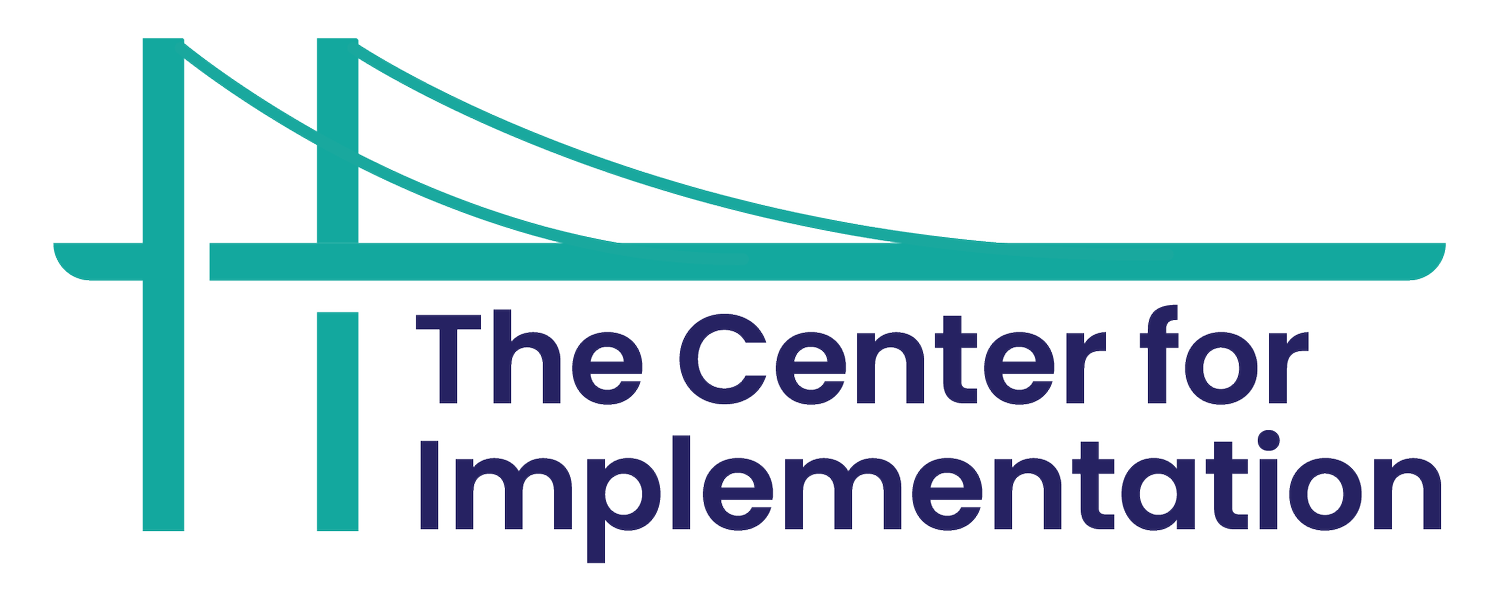Building Implementation Infrastructure: The Role of Implementation Support Practitioners
By Dr. Julia E. Moore, Executive Director, and Maoliosa Donald, Implementation Support Consultant
Note: We have updated our website since this article was published. As a result, you may have been redirected here from a previous URL. If you are looking for the article, "Project Spotlight: The use of implementation facilitators as a multifaceted implementation strategy to support the implementation of complex interventions” by Katherine M. Dollar, PhD, JoAnn Kirchner, MD, Jeffrey Smith, and Eva Woodward, please click here.
Building implementation capacity (infrastructure) within organizations, such as complex healthcare systems for project or topic-specific scale up efforts is relatively new and entails ongoing processes and resources to ensure effective implementation of evidence-based interventions, practices, and programs. There is a growing recognition of the importance of implementation support practitioners (professionals with multiple different titles or names that support the implementation, spread, and scale of interventions) as a means to build implementation capacity. While implementation science theories, models, and frameworks can guide how we design interventions, they can also guide how we train and support the implementation support practitioners. What does this actually look like?
Who are the implementation support practitioners?
Implementation support can be provided by a variety of players – researchers, program developers, implementers, clinicians, intermediary organizations, decision makers from within and/or external to the organization. Most often, these individuals have expertise in the topic area, but are relatively new to implementation science. Implementation support practitioners have been trained and supported in multiple different ways. For example, while we sometimes believe they just need training, the reality is that a “train and pray” approach often does not provide enough support for implementation practitioners to really put implementation science in practice. Another approach is embedding implementation researchers working side-by-side with implementer support practitioners to accomplish the successful implementation of a program. This strategy places a heavy burden on the implementation researchers, who are not trained in how to support implementers or the practice of implementation. In addition, once the program is implemented how is ongoing support provided to ensure sustainability? Engaging a single implementation support practitioner (i.e., the lone knowledge broker or implementation facilitator) became the new norm, but this approach also poses challenges, as these implementation support practitioners may feel isolated, without enough knowledge, skills, and resources to solve complex implementation challenges. Successful implementation is often a team effort, involving members of a single organization or multiple organizations. With this in mind, there is growing support for building implementation capacity within organizations.
Using implementation frameworks to build implementation capacity
There is limited evidence on how to systematically build implementation capacity within implementation support practitioners and organizations. Ideally, approaches should be based on the core competencies for implementation support practitioners and be guided by implementation frameworks. Implementation facilitation (IF) is a multifaceted strategy involving interactive problem-solving and support organization’s staff during the implementation of a program. Facilitators from within and outside an organization work together to support implementation activities.
This article was featured in our monthly Implementation in Action bulletin! Want to receive our next issue? Subscribe here.
